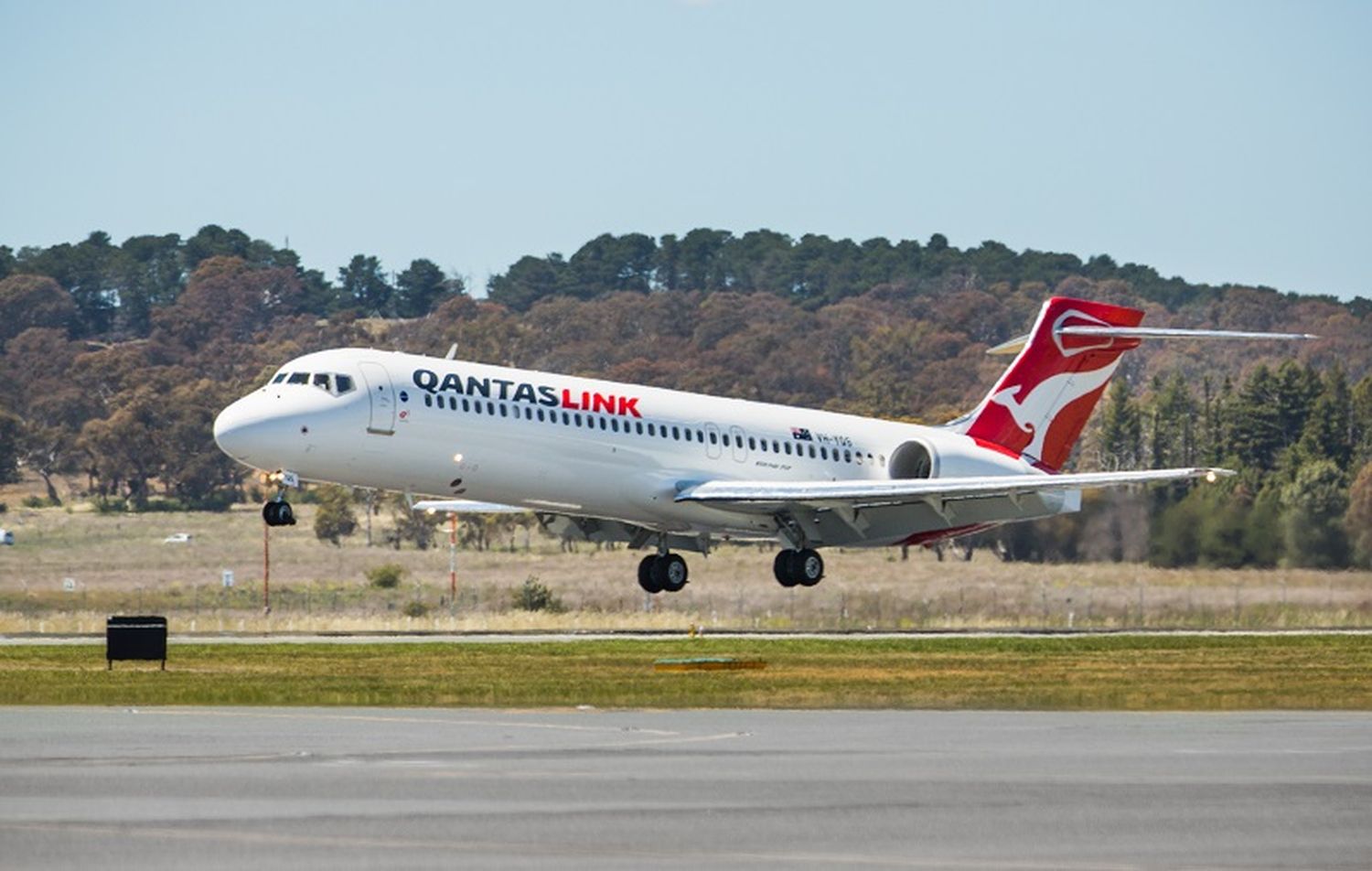Qantas reaffirmed that its acquisition of Alliance Aviation Services is not a monopolist move and that it will not lessen competition in the Australian charter market. The country’s consumer protection agency does not seem to agree.
The airline currently holds just under a 20% stake in Alliance and is its largest customer. The airline leases -on an AICM basis- up to 18 Embraer aircraft, which Alliance operates on its behalf on domestic routes.
In May, Qantas closed a deal to fully acquire Alliance. According to the company, this would enable it to provide a better service. The deal includes a condition whereby the acquisition will not become effective until the deal is approved by the Australian Competition & Consumer Commission (ACCC), the competition and consumer protection watchdog.
Alliance, despite representing only 2% of the Australian airline industry, operates around 30% of the country’s charter services. Qantas accounts for around 23%, Virgin Australia a similar percentage, and the remaining operations are distributed among several other airlines.
The government says it has «encountered problems» with the acquisition.
The ACCC said a that it has preliminarily found «competition concerns» with the proposed acquisition. According to the agency, Alliance and Qantas compete in the provision of charter services for mining companies. These transport industry workers on a fly-in fly-out basis in the states of Queensland and Western Australia.
ACCC chair Gina Cass-Gottlieb noted in this regard that the agency is «concerned that this acquisition could substantially reduce competition in air transport services to and from remote areas of Queensland and Western Australia for corporate clients.»
«This merger would unite two of the three major air transport operators in Queensland and Western Australia. A number of industry participants have expressed concern about the impact of this proposed acquisition on transport services,» Cass-Gottlieb added. As an example, the agency noted that the merger would make the Brisbane-Moranbah route a Qantas monopoly.
The ACCC said it is studying the level of competition that airlines such as Virgin and Cobham would bring to Alliance’s operation if it were taken over by Qantas. It is also looking at how the elimination of Alliance’s leasing services would affect entrants to regional routes, as the company is a key supplier of mid-sized, wet-leased aircraft.
On this point, Cass-Gottlieb added that the agency believes, at least preliminarily, that «significant barriers already exist for airlines wanting to enter or expand operations in remote areas. The demise of Alliance as a wet-lease provider is likely to result in even higher barriers.» The board closed by stating its view of the industry. «Competitive aviation is critical to the Australian economy, and we will be looking closely at any mergers that may affect it.»
According to Rex, the consequences of the monopoly are already beginning to show
Rex, Australia’s largest regional airline, said Qantas’ cessation of operations on the Melbourne-Wagga Wagga and Melbourne-Mount Gambier routes «clearly demonstrates» the airline’s true intentions.
The airline had already warned in December 2020 -both to the general public and to competition regulators- of its «serious concerns that Qantas was embarking on a dumping strategy: the airline was flooding the regional airline market with excess capacity so as to eliminate its competitors, which would have devastating long-term effects for regional aviation.»
The airline continues: «Instead of withdrawing, we significantly increased our operations on regional routes in order to stand up to Qantas. Seeing that its behavior did not have the desired effect, the airline realized that its losses made these routes unsustainable».
Rex closed with a prediction: «These two cancellations are just the tip of the iceberg, and will be followed by a number of other marginal routes that Qantas entered only with monopolist intentions, wanting to destabilize the economics of these routes and forcing competitors to abandon them».
Qantas executives defend the airline
John Gissing, head of Qantas’ Airlines and Associated Services division, said the airline will continue to work with the ACCC to ensure that any competition issues are resolved.
Gissing noted that «Australia has one of the most competitive aviation industries in the world. There is a significant number of charter operators of varying sizes and this makes it an extremely competitive segment. We are confident that our acquisition of Alliance does not substantially diminish that competition, and labeling Qantas a monopolist makes no sense.»
«The customers for these charter flights are large companies with a lot of resources, with experience in corporate contracts, and with strong bargaining power,» Gissing added. Finally, the executive closed by stating that «the sector continues to grow and any bidding will be very competitive.»
When Qantas bought its minority stake in Alliance in 2019, it made clear its interest in acquiring, in the long term, 100%. According to the airline, the ACCC investigated its stake in Alliance for three years and found no evidence that the stake diminished competition.


Comentarios
Para comentar, debés estar registrado
Por favor, iniciá sesión